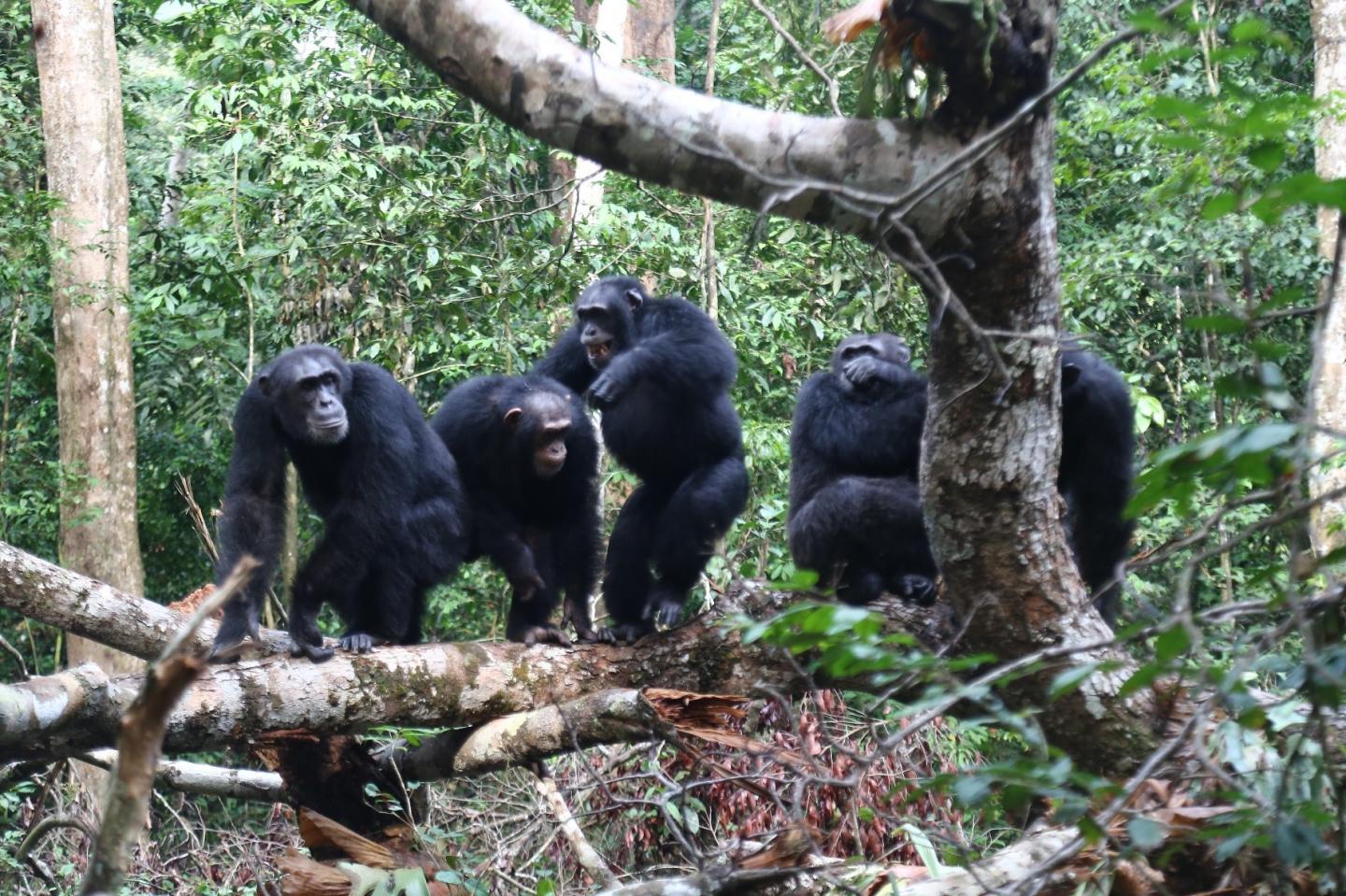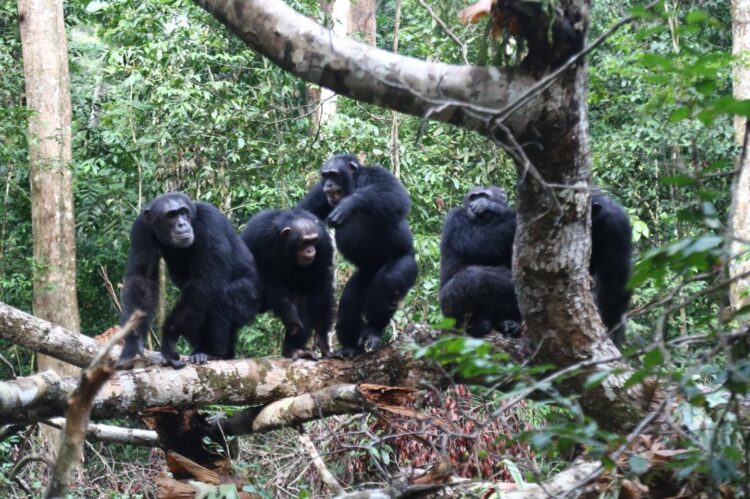Strong social bonds increase the willingness to join others in battle

Credit: Liran Samuni, Taï Chimpanzee Project
Chimpanzees, one of the closest relatives of humans, cooperate on a group level – in combative disputes, they even cooperate with group members to whom they are not related. Those involved in fights with neighbouring groups put themselves at risk of serious injury or even death.
Within the context of the Tai Chimpanzee Project researchers observed three chimpanzee communities in Tai National Park in Cote d’Ivoire documenting social relationships, territory range and intergroup encounters amongst others. “We have been able to analyze almost 500 vocal and physical battles from the last 25 years with participation of at least one of the three habituated communities, some of which have caused severe injury or death”, says Liran Samuni, the first author of the study.
The study showed that males, as well as females participate in the battles and that three factors increased the likelihood of participation in the intergroup encounter when there were many individuals participating, when maternal kin joined and when non-kin social bond partners were present. “It seems chimpanzees not only consider the sheer number in their sub-group when moving into battle, but they consider the presence of a trusted group member, who will support them in case of an attack”, adds Catherine Crockford, senior author of the study. “These results suggest”, Liran Samuni continues, “that the link between strong, enduring social relationships and costly collective acts is not uniquely human, but is present in one of our closest living relatives, the chimpanzee.”
“This study is part of a series of several investigations linking in-group cooperation with out-group competition”, explains Roman Wittig, director of the Tai Chimpanzee Project and senior author of the studies. “We were able to show that out-group competition reduces chimpanzees’ reproduction and their territory size. On the other hand, out-group competition increases in-group cohesion and, likely facilitated by the neurohormone oxytocin, reduces the likelihood of defection in battle.”
Data from the Tai Chimpanzee Project, with four neighboruing communities observed on a daily basis, will be a key source for scientific investigations into the ultimate and proximate causes of group-level cooperation. “The Tai chimpanzees can teach us”, Roman Wittig points out, “what social tools enable human’s unique capacity for large-scale cooperation with non-kin”.
###
Original publication:
Liran Samuni, Catherine Crockford, Roman Wittig
Group-level cooperation in chimpanzees is shaped by strong social ties
Nature Communications, 22 January 2021
Contact:
Dr. Roman Wittig
Max Planck Institute for Evolutionary Anthropology, Leipzig
+49 341 3550-204
[email protected]
Dr. Catherine Crockford
Max Planck Institute for Evolutionary Anthropology, Leipzig
+49 341 3550-220
[email protected]
Media Contact
Sandra Jacob
[email protected]
Related Journal Article
http://dx.





